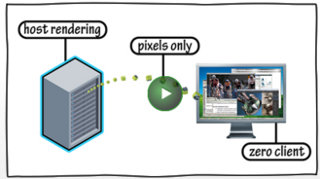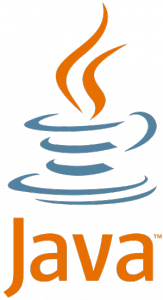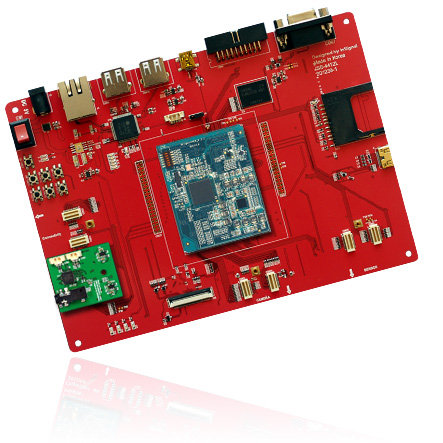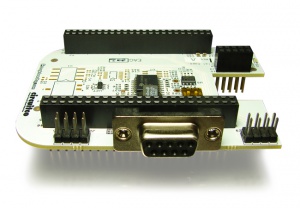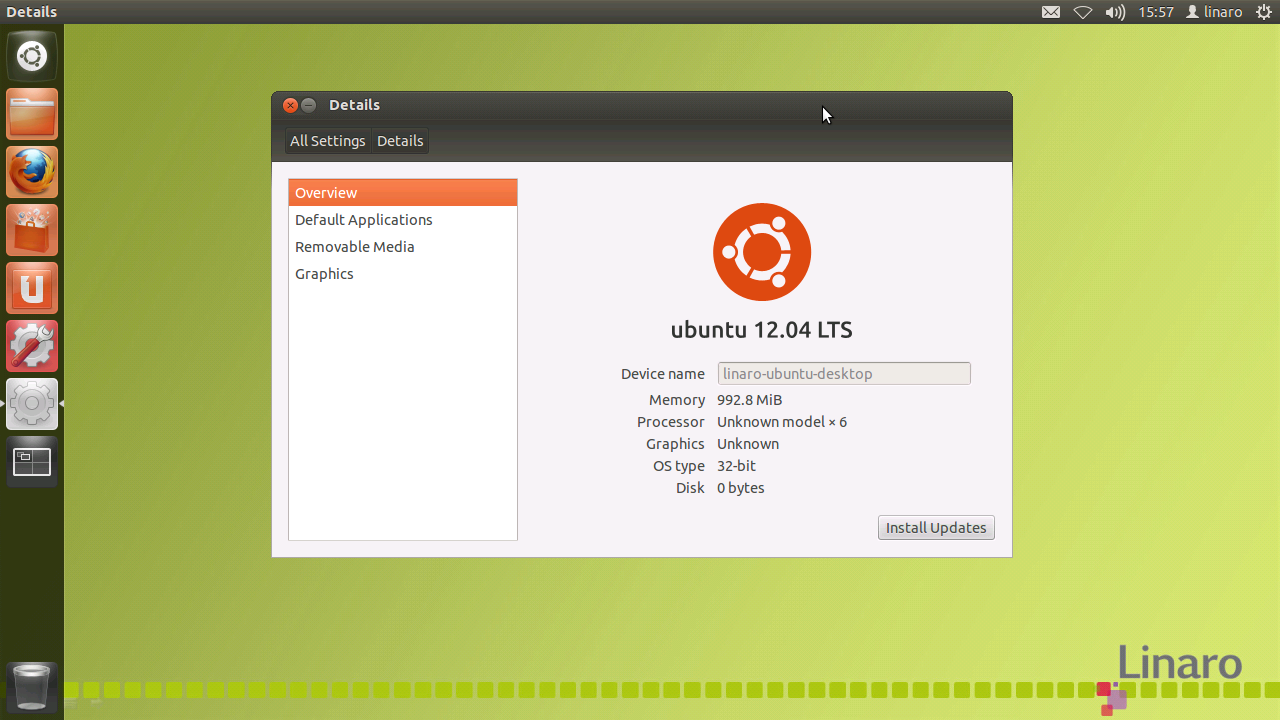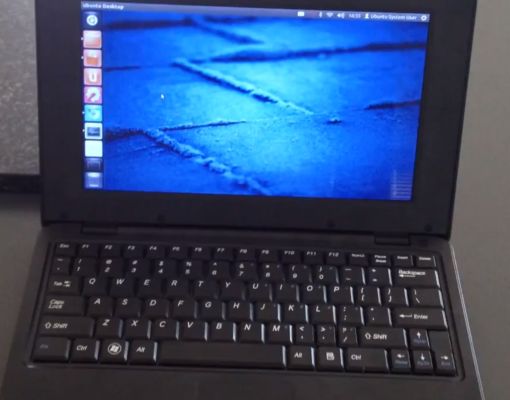Oleg Romashin, a Nokia engineer, has been working on porting Firefox OS (previously known as Boot 2 Gecko) to the Raspberry Pi, and has uploaded a YouTube video showing a Firefox OS running on the device, including a WebGL teapot demo running at 60 fps. This Firefox OS build is based on Debian Squeezy, with plain EGL rendering, no Widget Toolkit backends and no X11. Some parts do not look very smooth yet, but this demo looks promising. If you want to try it yourself, you can download the WebGL teapot build. Mozilla patches with LinuxGL widget backend are also available at http://hg.mozilla.org/users/romaxa_gmail.com/embedipc_queue/file/linuxglpure. If you have the N9 smartphone or Beagleboard, it looks like you can also try this. Check files in http://romaxa.info/b2g/. Jean-Luc Aufranc (CNXSoft)Jean-Luc started CNX Software in 2010 as a part-time endeavor, before quitting his job as a software engineering manager, and starting to write daily news, and […]
Teradici Announces PCoIP Tera2 Host and Zero Client Processors
Earlier this year, I discovered PCoIP (PC over IP) , a remote desktop protocol that provides basically the same functionality as VNC or RDP, but promises better performance on low end hardware by using different compression methods depending on the content on the display. Teradici, the company behind this technology, has today announced its next-generation Tera2 processors specifically designed to handle PCoIP by hardware: TERA2220 dual display host processor – 150 Mpps (Megapixels per seconds), supports up to two displays at 1920×1200 resolution, or one at 2560×1600. TERA2240 quad display host processor – 300 Mpps, supports up to four displays at 1920×1200 resolution, or two at 2560×1600. TERA2321 dual display zero client processor TERA2140 quad display zero client processor Both Tera2 host processors include advanced security features such as AES-256 and NSA Suite B security protocols, and are capable of refreshing the full display at up to 60fps. Tera2 PCoIP zero client […]
Oracle releases JDK for Linux ARM (Soft-Float Only)
Oracle announced the availability of JDK 7 Update 6 which introduces a JDK for Linux on ARM v6 and v7 architecture. This JDK is aimed at “general purpose” ARM systems, such as ARM micro-servers and ARM development platforms. This new JDK for Linux on ARM is licensed under the Oracle Binary Code License, and can be downloaded at no cost for development and production use on general-purpose platforms. For embedded use such as an industrial controller or a kiosk appliance, a commercial license would be required. Here’s how Oracle summarizes the ARM Linux JDK features: This port provides 32-bit binary for ARMv6 and v7, with full support for Swing/AWT, both client (C1) and server (C2) compilers and runs on most Linux distributions. One caveat is that the current binary is softfloat ABI only, so it won’t work with (for example) the Raspbian distribution which uses the hardfloat ABI. We are […]
Exynos 4412 based Origen 4 Quad Development Board Soon Available for $199 USD
As I wrote a list of the Top 10 ARM Linux development boards, I discovered that Origen 4 Quad development board based on Exynos 4412 quad core Cortex A9 processor is currently in development and will replace the Origen board (Samsung Exynos 4212). This board appears to be similar to Hardkernel ODroid-X board, but pricing won’t be as aggressive as it will sell for $199 (vs $129 for the ODroid-X) in the base configuration. Here are the specifications for the base version (ORIGEN 4 Quad Package-C): CPU Board CPU : Samsung Exynos 4 Quad Cortex-A9 core 1.4 GHz DRAM : 1 GB (POP Type) PMIC : S5M8767A Base Board HDMI support Ethernet (10/100 Mbps), SDcard 2x USB 2.0 Host, 1x USB 2.0 Device Serial, JTAG Connector support (Sub Boards) External I/F MIPI CSI/DSI , Parallel, C2C Sub Boards Sound Board: Realtek : ALC-5631Q-A ORIGEN 4 Quad Package-B is based on […]
Over 20 Capes are Now Available for the Beaglebone
BeagleBoard.org has recently announced that over 20 plug-in boards (called Capes) are now available for the BeagleBone, an open hardware board powered by TI Sitara AM335x Cortex A8 processor. Capes allow to expand the abilities of the board via two 46-pin headers. Each cape has those 2 headers as well, and up to 4 capes can be stacked on a Beaglebone as long as the pins do not conflict… Here are some of the available capes: BeagleBone LCD7 Cape – Features a 7-inch TFT LCD screen with 4-wire resistive touch and five user buttons. BeagleBone Camera Cape – Allows you to add a camera via QuickLogic CSSP camera interface solution connected via the GPMC (General Purpose Memory Controller) bus of the Beaglebone. BeagleBone Weather Cape – Includes temperature, barometric pressure, humidity and ambient light sensors. BeagleBone DVI-D Cape – Provides a DVI-D interface, which can be handy since there is no […]
Ubuntu 12.04 on ODroid-X Development Board
Yesterday, Hardkernel released the first version of Ubuntu for ODroid-X development board based on Linux 3.6-rc1 and Linaro Ubuntu Desktop 12.07. This is still early work, but here’s the current status: Linux Kernel 3.6-rc1 with gcc 4.7.1 Linaro toolchain SMP driven Quad-Core processing PMIC device driver USB 2.0 High-speed Host driver for Exynos-4412 HSIC interface Ethernet + USB Hub device driver LCD display driver HDMI display driver (Very early version and it may have HDMI 1.4a compatibility issues with some monitors) To do: Audio codec driver eMMC device driver Clock control driver 3D HW-GPU X11 driver (This may need couple of months) Power-off support WiFi module is not working with Ubuntu GUI. Hardkernel Wi-Fi module is not working due to missing driver There are 2 images: one for LCD display kits, one for HDMI output that can be downloaded via: BitTorrent – One file with both images? Very slow for […]
Rikomagic To Sell an AllWinner A10 Android & Ubuntu Netbook
Rikomagic, the company that sells the MK802 mini PC, is planning to sell a netbook based on AllWinner A10 processor that runs both Android and Ubuntu operating systems. This device looks very much like the H6 netbook with a 10″ 1024×600 display, 1 GB RAM, 4 to 8 GB flash. an SD card slot, 3 USD ports, audio in/out and a front camera. Android currently runs in the internal flash, and Ubuntu can be booted from an SD card. In the video below, Andy Kirby of Rikomagic gives an overview of the netbook and shows a demo of Ubuntu Desktop running from an SD card. The Linux OS seems to run relatively smoothly as he shows pages rendered in Chromium.However, hardware acceleration (both OpenGL and VE) is missing, and Youtube video playback is very slow as it is rendering in software. Open Office is also a bit slow, but it’s […]
15 Linaro OnAir Sessions about Android, Linux, Debugging and Software QA
Linaro has planned 15 virtual conferences between Monday, August 13 and Saturday, August 18, 2012. Those online events will deal with the work done at Linaro, including software optimization, software QA, Android and Linux kernel development, Open Embedded on ARMv8 and more. Those conferences are public and anybody can join. All times indicated below are GMT+07:00 (Bangkok), so you can either mentally convert the time (recommended), or click on the links below to get the date and time in your timezone. Exploring The Performance Impact of PGO and LTO on ARM– Mon, August 13, 5:00 PM Abstract: Profile guided and linked time optimisation (PGO and LTO) are two of GCC’s cross program optimisations that should improve both the startup and runtime of typical programs. We know that they basically work on ARM but don’t know the potential speed up or the work involved in proper support. This session will cover […]



